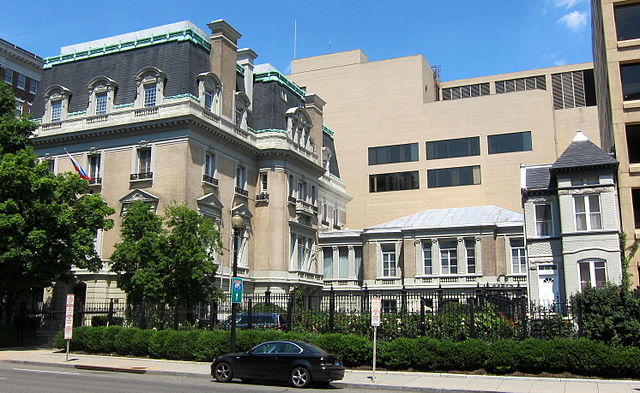Top Qs
Timeline
Chat
Perspective
Nikolai Novikov (diplomat)
Soviet diplomat From Wikipedia, the free encyclopedia
Remove ads
Nikolai Vasilyevich Novikov (Russian: Никола́й Васи́льевич Но́виков; 7 February 1903 – 1989) was a Soviet diplomat born in Saint Petersburg.
Remove ads
You can help expand this article with text translated from the corresponding article in Russian. (January 2023) Click [show] for important translation instructions.
|
Remove ads
Biography
He graduated from the Oriental Institute in St. Petersburg in 1930. In the following years, he held various scientific and academic positions, also serving in the Foreign Office in Moscow and Soviet representative in Cairo during World War II. Most notably, he served as ambassador of the Soviet Union to the United States, being named to that post on 10 April 1946 until he was relieved of his duties on 24 October 1947; he had been away from Washington since being recalled to Moscow for consultations on 26 July that year.
Novikov and his wife had two sons, Yuri (b. 1939) and Nikolai (b. 1943).
In 1990, during Glasnost, some of Novikov's papers from 1946 were released; this revealed the influential "Novikov telegram" or "Novikov report" which was, in part, a reaction to the highly critical telegram of George F. Kennan (Joseph Stalin and Vyacheslav Molotov were among the audience of this "top secret" article.)
Remove ads
Gallery

References
- Book review of Origins Of The Cold War: The Novikov, Kennan, And Roberts 'Long Telegrams' Of 1946, from Foreign Affairs
- "Novikov Telegram" https://www.mtholyoke.edu/acad/intrel/novikov.htm
Wikiwand - on
Seamless Wikipedia browsing. On steroids.
Remove ads

